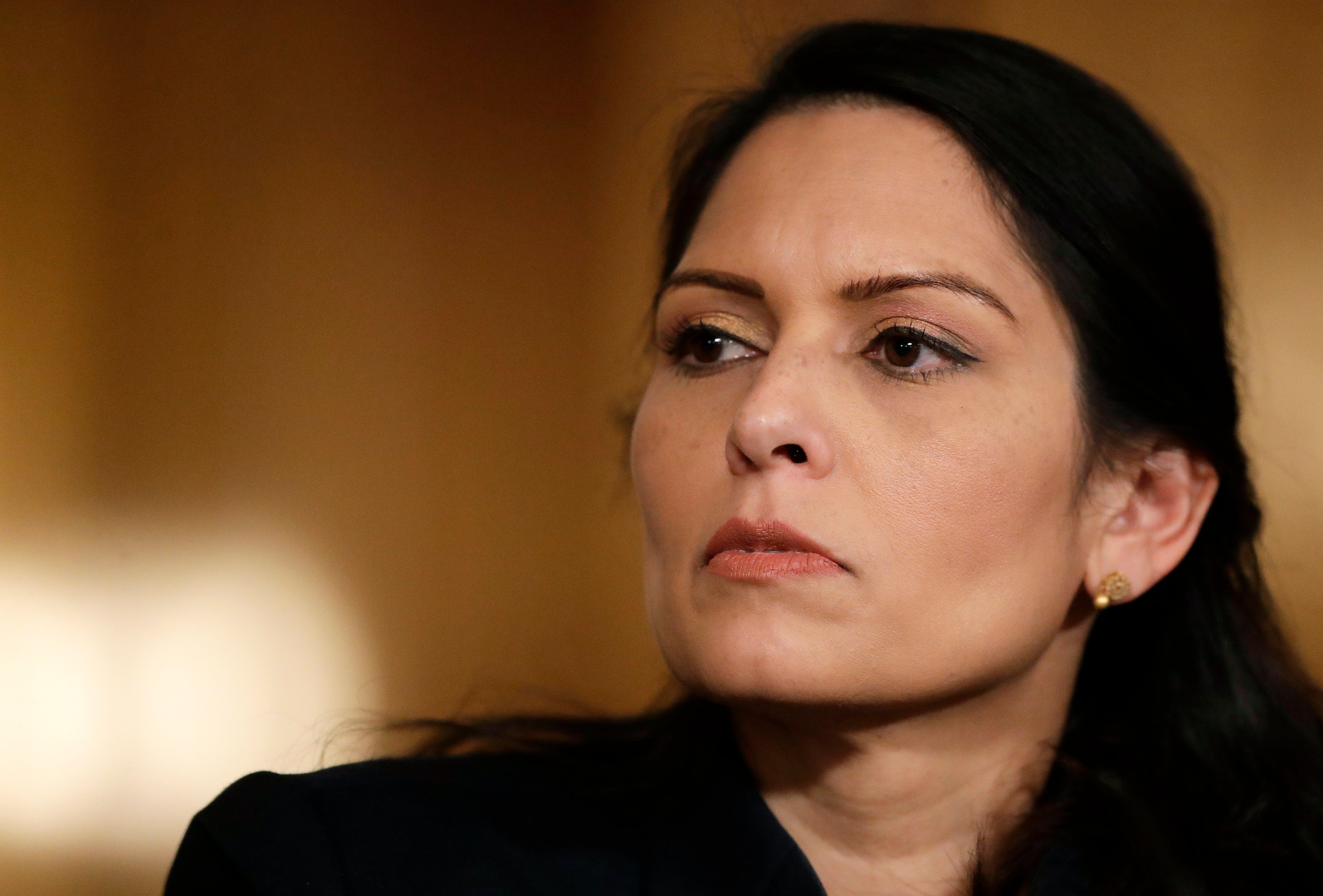Priti Patel’s asylum overhaul plans ‘almost neo-colonial’, warns UN
UK proposals present ‘profound threat’ to international refugee protection system, says UNHCR

The UN has described Priti Patel’s planned asylum overhaul as an "almost neo-colonial approach" designed to shift the responsibility for protecting refugees away from Britain.
At a Chatham House briefing on Thursday, Gillian Triggs, the assistant high commissioner for protection at the UNHCR, said the UK appeared to be trying to “wash its hands” of its international responsibilities.
The Nationality and Borders Bill, laid in parliament on Tuesday, would enable immigration officers to intercept vessels in British waters and take them to foreign ports – a controversial practice known as pushback.
It would also allow the Home Office to send asylum seekers overseas while their claims are processed, in a similar way to the offshore polices introduced in Australia in 2013. Rwanda, Ascension Island and Gibraltar have been mooted as potential offshore locations.
Other proposals in the bill include denying permanent protection to asylum seekers who arrive in the UK via unauthorised means, which accounts for more than six in 10 of those who have arrived in recent years.
And it would pave the way for the Home Office to effectively punish countries that refuse to take back their own citizens with a new power to control the availability of visas for legal entrants to the UK.
Ms Triggs criticised the UK, as well as Denmark, which is pursuing similar reforms, for turning to “externalisation” – likening the plans to Australia’s use of processing centres in Nauru and Papua New Guinea.
She said the UNHCR was “absolutely dismayed that some of our strongest supporters historically are now playing with this idea of externalising their responsibilities”.
“What we are finding is that western, developed and wealthy countries are now not sharing responsibilities but shifting burdens to these poor countries,” she added.
Lawyers, doctors and politicians in Australia have warned the UK not to replicate its “dark and bloody chapter” on asylum, describing their country’s offshore regime, which provoked global outrage and has now been wound down, as an “international embarrassment”.
Describing the Australian policies as having had “disastrous consequences”, Ms Triggs said: “To see Denmark and now the UK looking at the same ideas is a matter of deep concern to UNHCR because we see it as almost a neo-colonial approach.
“You pass it off to ... African countries and you wash your hands with it. You might pay a lot of money ... but nonetheless to shift the burden in that way without the safeguards is a problem.”
She added: “If we push back at the borders and we do not allow a claim to be made at the border, you pretty much undermine the entire asylum system.”
In order to send asylum seekers overseas for processing, the UK would require an agreement in the destination country or territory. The Home Office has so far refused to comment on the progress of any negotiations.
The idea of such agreements has been opposed by governments including those of Gibraltar and Scotland. Ms Triggs said she expected the UK and Denmark would face difficulty finding partners in their schemes.
Another central part of Ms Patel’s asylum plan is to attempt to remove people who arrive via unauthorised routes, such as on a small boat across the Channel, to a safe country that they have passed through.
However, to do this, the Home Office will likely need to strike bilateral returns agreements with countries such as France, Germany and Belgium – all of which have confirmed to The Independent that they are not prepared to participate.
A Home Office spokesperson said its plans would “fix the broken asylum system”, adding: “We will welcome people through safe and legal routes whilst preventing abuse of the system, cracking down on illegal entry and the criminality associated with it.”
Join our commenting forum
Join thought-provoking conversations, follow other Independent readers and see their replies
Comments
Bookmark popover
Removed from bookmarks